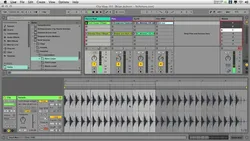
Ableton Live I: The First Steps of Digital Music Production 
This course provides an introduction to digital music production using Ableton Live. It is designed for those with basic computer skills and covers topics such as setting up a project, recording audio, MIDI sequencing, and mixing. Participants will gain the knowledge and skills needed to create their own music. ▼
ADVERTISEMENT
Course Feature
![]() Cost:
Cost:
Free Trial
![]() Provider:
Provider:
Skillshare
![]() Certificate:
Certificate:
Paid Certification
![]() Language:
Language:
English
![]() Start Date:
Start Date:
On-Demand
Course Overview
❗The content presented here is sourced directly from Skillshare platform. For comprehensive course details, including enrollment information, simply click on the 'Go to class' link on our website.
Updated in [March 06th, 2023]
This course, Ableton Live I: The First Steps of Digital Music Production, is designed to provide a comprehensive introduction to the Ableton Live software. It is suitable for those with basic computer fundamentals, such as navigating files and folders on drives, and knowing their way around the settings for their OS.
The course begins with an overview of the Ableton Live interface, settings, and browsers. It then moves on to demonstrate the difference between audio clips, tracks, and scenes. The course culminates with a 15-minute introduction to warping, which is the process of matching the tempos of different audio tracks.
By the end of the course, students will have a solid understanding of the Ableton Live software and be able to create, produce, and perform music. They will also have the skills to take on the next three courses in the series: Ableton Live II: MIDI (Musical Instrument Digital Interface), Ableton Live III: Shape Your Own Audio & Beats, and Ableton Live IV: Finishing a Track.
[Applications]
Upon completion of this course, students will have a better understanding of the basics of digital music production with Ableton Live. They will be able to navigate the interface, settings, and browsers, as well as understand the difference between audio clips, tracks, and scenes. Additionally, they will have a basic understanding of warping and how to match the tempos of different audio tracks. To further their knowledge, students can check out the other classes in Brian's series to learn more about MIDI, shaping audio and beats, and finishing a track.
[Career Paths]
1. Audio Engineer: Audio engineers are responsible for recording, mixing, and mastering audio for a variety of projects, such as music, film, television, and video games. They use a variety of tools and techniques to create the desired sound, including microphones, mixing boards, and digital audio workstations. As technology advances, audio engineers must stay up to date with the latest trends and techniques in order to remain competitive in the industry.
2. Music Producer: Music producers are responsible for overseeing the production of music, from pre-production to post-production. They work with artists to create the desired sound, and use a variety of tools and techniques to achieve this. Music producers must have a good understanding of music theory, as well as the latest trends in music production.
3. Sound Designer: Sound designers are responsible for creating sound effects and soundscapes for a variety of projects, such as films, television shows, video games, and more. They use a variety of tools and techniques to create the desired sound, including synthesizers, samplers, and digital audio workstations. As technology advances, sound designers must stay up to date with the latest trends and techniques in order to remain competitive in the industry.
4. Live Performance Artist: Live performance artists are responsible for creating and performing live music for audiences. They use a variety of tools and techniques to create the desired sound, including synthesizers, samplers, and digital audio workstations. As technology advances, live performance artists must stay up to date with the latest trends and techniques in order to remain competitive in the industry.
[Education Paths]
1. Audio Engineering Degree: Audio engineering degrees provide students with the skills and knowledge to work in the music industry. Students learn about recording, mixing, and mastering audio, as well as the fundamentals of music production. This degree is ideal for those interested in working in the music industry, as well as those who want to pursue a career in audio engineering. Developing trends in this field include the use of digital audio workstations, virtual instruments, and the use of plugins to create unique sounds.
2. Music Production Degree: Music production degrees provide students with the skills and knowledge to create and produce music. Students learn about music theory, composition, and arrangement, as well as the fundamentals of sound engineering. This degree is ideal for those interested in creating and producing music, as well as those who want to pursue a career in music production. Developing trends in this field include the use of digital audio workstations, virtual instruments, and the use of plugins to create unique sounds.
3. Music Technology Degree: Music technology degrees provide students with the skills and knowledge to work in the music industry. Students learn about recording, mixing, and mastering audio, as well as the fundamentals of music production. This degree is ideal for those interested in working in the music industry, as well as those who want to pursue a career in music technology. Developing trends in this field include the use of digital audio workstations, virtual instruments, and the use of plugins to create unique sounds.
4. Music Business Degree: Music business degrees provide students with the skills and knowledge to work in the music industry. Students learn about the business side of the music industry, such as marketing, promotion, and distribution. This degree is ideal for those interested in working in the music industry, as well as those who want to pursue a career in music business. Developing trends in this field include the use of digital platforms to promote and distribute music, as well as the use of streaming services to reach a wider audience.
Pros & Cons

Amazing clarity of content

Articulate and knowledgeable instructor

Clear and interesting to follow

Best beginners Ableton tutorial

Timesaving features

Informative class

Breezed over some features

Course is for Live 9
Course Provider
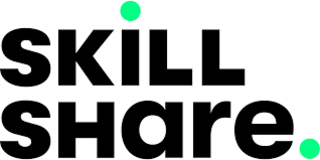
Provider Skillshare's Stats at AZClass
Ableton Live I is an introduction to making digital music with Ableton Live. It's designed for those with basic computer skills and covers topics like setting up projects, recording audio, MIDI sequencing, and mixing. Participants will gain the knowledge and skills needed to create their own music. Now you can learn more about Ableton Live with a 65-minute brief from audio engineers, musician and producer Brian Jackson. Brian quickly familiarizes you with the interface, settings, and browser; demonstrating the differences between audio clips, tracks, and scenes, culminating in an engaging 15-minute introduction.
Discussion and Reviews
0.0 (Based on 0 reviews)
Explore Similar Online Courses

Amazon FBA Seller Reimbursements: Full Training Guide

Create Sales Page with Free Tools and Software

Python for Informatics: Exploring Information

Social Network Analysis

Introduction to Systematic Review and Meta-Analysis

The Analytics Edge

DCO042 - Python For Informatics

Causal Diagrams: Draw Your Assumptions Before Your Conclusions

Whole genome sequencing of bacterial genomes - tools and applications
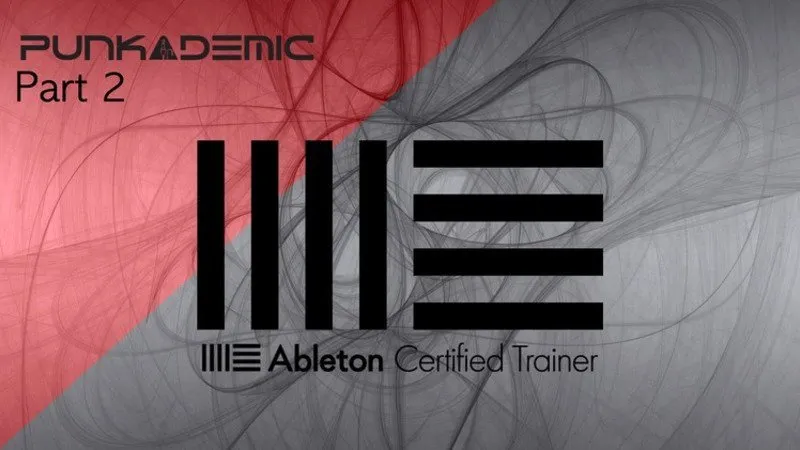
Ableton Live 10 Part 2: Recording & Warping
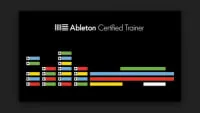
Producing Drums with Ableton Live and Drum Rack
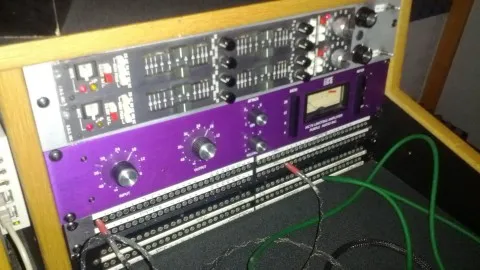

Start your review of Ableton Live I: The First Steps of Digital Music Production